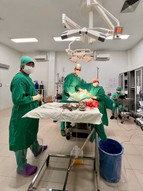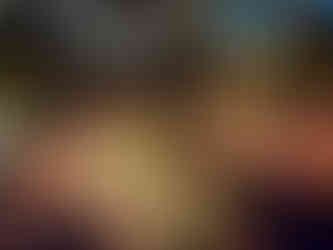Overwhelming impressions
- stiftungkanthaboph
- Jul 8, 2025
- 3 min read
For us Swiss students – Andrin and Simeon – our time at the Kantha Bopha Children's Hospital has already come to an end. These two months passed incredibly quickly, and in this short time we were able to gain impressions that will remain in our memories for a long time to come. We would like to share with you the moments that made the biggest impression on us and what we learned from them.

Cambodian warmth and friendliness
From the very first moment, we were impressed by the warmth of the people at the hospital. A warmth that was unusually sincere and could be felt in almost every acquaintance and encounter. No matter which department we were in—obstetrics, pediatric and adolescent surgery, or pediatrics—the warm nature of the people, combined with hopeful forbearance and understanding for us students in a completely unfamiliar environment, was omnipresent.
This was evident, for example, in the enormous joy the doctors took in sharing their knowledge with us in short lectures, even if this took 30 minutes out of their busy hospital day. And even during operations, we – the junior doctors who are normally at the bottom of the food chain – were made to feel like an important part of the bigger picture. For example, we were allowed to regularly assist with caesarean sections and, towards the end of the procedure, after the newborn had already been successfully delivered, we were allowed to try our hand at fascial, subcutaneous, and skin suturing. It was particularly encouraging and further proof of Cambodian warmth to hear from the surgical assistants, anesthetists, and surgeons present that they had rarely seen such good sutures from a student.
Work ethic and professional pride
We were also impressed by the attitude toward work and the employer. The Kantha Bopha hospitals are well known among the population, and Beat Richner is almost idolized as a person. Some employees told us that they themselves were born in a Kantha Bopha hospital and therefore want to give something back—many are proud and grateful to be able to work in the hospital. Working hours are from 7:00 a.m. to 11:30 a.m. and from 2:00 p.m. to 5:00 p.m., with Saturdays always working until noon.
Doctors work a 26-hour shift every fourth day and then have the following day off. They have two weeks of vacation per year. Overall, the workload is high, but the atmosphere is very relaxed—few people seem stressed or irritable. In previous junior assistant positions in Switzerland, we often perceived things differently: fear, stress, and overload were much more common among doctors.
The quality of simplicity
The standard of medical care is high and comparable to that in Switzerland in many areas. Nevertheless, it was impressive to see that much of it is reduced to the bare essentials and most efficient: lean bureaucracy, quick decisions, or the involvement of relatives in the care of children, to name just a few examples.
It is obvious that these processes are different in Switzerland. Given the increased public disagreement about the level of healthcare costs, it was impressive to see that good medical care is also possible with far fewer financial resources.
The precious gift of health
During our work at the Kantha Bopha Children's Hospital, we became even more aware of what a great privilege it is to be able to contribute to people's health as a doctor. It is also extremely fulfilling to see how children can return home healthy thanks to medical care. A large part of the Cambodian population still lives in extreme poverty, which was clearly evident in the hospital. We hope that all children will one day be able to escape this poverty. Their chances of doing so are greatly improved if they are in good health. On the one hand, we feel all the more grateful for our own good health, and on the other hand, we are all the more delighted to soon be able to work as doctors ourselves and help people recover and maintain their health.
Now that we have left Siem Reap, the positive feelings from the many overwhelming impressions are growing stronger. We are convinced that we have benefited greatly from this experience and would like to thank everyone very much for making it possible.
We hope that Beat Richner's legacy will continue for many years to come and that the staff at the Kantha Bopha hospitals will be able to continue in this vein – and that we may be able to continue to contribute in some small way in the future.
With best regards
Andrin and Simeon










Comments